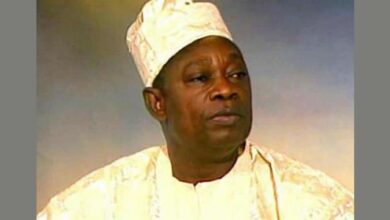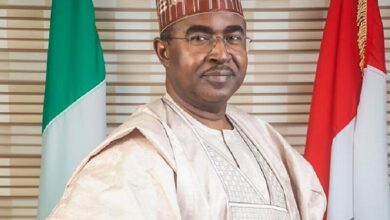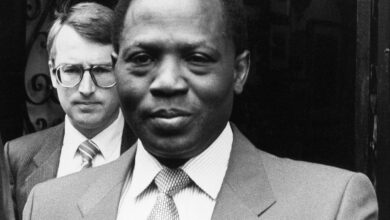20 Things You Should Know About James Ibori

James Ibori is a prominent Nigerian politician known for his influential role in the political landscape of Delta State and his controversial tenure as governor. This article outlines 20 essential facts about James Ibori, capturing his life, career, and impact on Nigerian politics.
1. Early Life and Education
James Ibori was born on August 4, 1962, in Oghara, Delta State, Nigeria. He studied at the University of Benin, where he earned a degree in Economics.
2. Political Career Beginnings
Ibori began his political career as a member of the National Democratic Coalition (NADECO) during Nigeria’s transition to democracy in the late 1990s. His political journey eventually led him to the Delta State governorship.
3. Governorship Tenure
Ibori served as the governor of Delta State from 1999 to 2007. His tenure was marked by significant infrastructure development and investment in the state’s oil and gas sector.
4. Economic Initiatives
Under Ibori’s leadership, Delta State saw substantial economic growth, with initiatives aimed at improving education, healthcare, and road infrastructure, making him a popular figure among his constituents.
5. Controversies and Allegations
Ibori’s governorship was marred by controversies, including allegations of corruption and embezzlement of public funds, which have been a significant aspect of his legacy.
6. Arrest and Extradition
In 2010, Ibori was arrested in Dubai and later extradited to the United Kingdom, where he faced charges related to money laundering and fraud.
7. Conviction
In 2012, Ibori was convicted in a UK court for fraud and money laundering, leading to a sentence of 13 years in prison. This conviction drew international attention to corruption in Nigeria.
8. Release and Return to Nigeria
Ibori was released from prison in December 2016 after serving part of his sentence. He returned to Nigeria, where his homecoming was met with mixed reactions from the public and political elites.
9. Political Influence
Despite his legal troubles, Ibori remains a significant figure in Delta State politics. His influence extends to his supporters, who continue to rally around him.
10. Family Background
James Ibori is married and has children. His family has played an essential role in his political career, with several family members involved in local politics.
11. Philanthropy
Ibori is known for his philanthropic efforts, particularly in education and healthcare. He has funded various initiatives aimed at improving the lives of his constituents.
12. Cultural Heritage
Ibori is a proud advocate for the Urhobo culture, promoting the traditions and values of his ethnic group throughout his political career.
13. Public Speaking
Ibori is a charismatic speaker and has participated in numerous public forums, discussing issues related to governance, development, and youth empowerment.
14. Leadership Style
His leadership style has been characterized by a focus on grassroots engagement, often connecting with the people directly through town hall meetings and public events.
15. Controversial Legacies
While some view Ibori as a transformative leader, others criticize him for his alleged corrupt practices, making him a polarizing figure in Nigerian politics.
16. Political Alliances
Ibori has formed strategic alliances with various political groups and figures, influencing electoral outcomes and shaping party dynamics within Delta State.
17. Involvement in National Politics
He has been involved in national politics, supporting presidential candidates and influencing party nominations, which showcases his continued relevance in Nigerian politics.
18. Media Presence
Ibori maintains a presence in the media, often addressing his supporters and the public through interviews and press releases, aiming to shape his narrative post-incarceration.
19. Legacy of Empowerment
Ibori’s tenure as governor is often credited with fostering youth empowerment initiatives, including skills development programs and vocational training.
20. Future Aspirations
Despite his past, Ibori has hinted at a desire to remain involved in politics, seeking ways to contribute to the development of Delta State and Nigeria at large.
James Ibori’s journey reflects the complexities of Nigerian politics, marked by both achievement and controversy. His legacy continues to shape the political landscape of Delta State and beyond, serving as a reminder of the challenges and opportunities within the realm of governance. Understanding Ibori’s life and career provides insight into the broader issues of corruption, leadership, and accountability in Nigeria.




